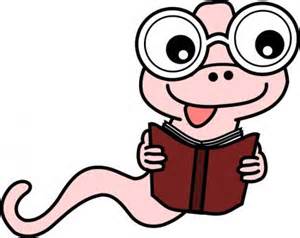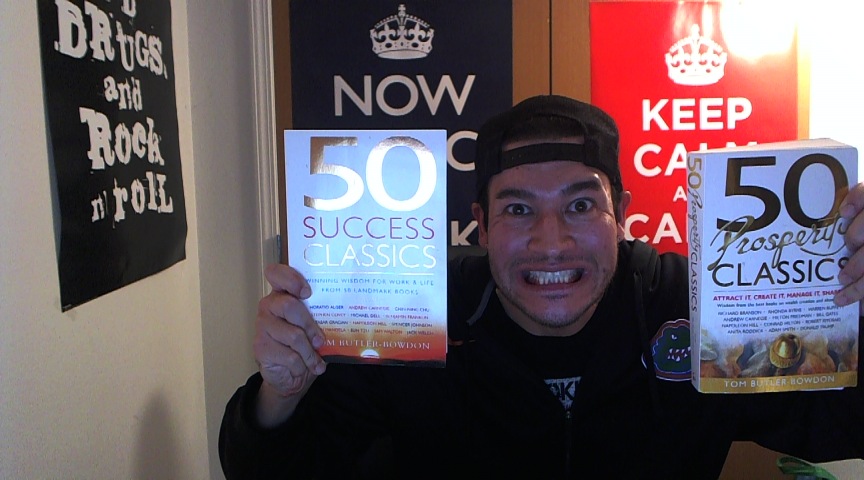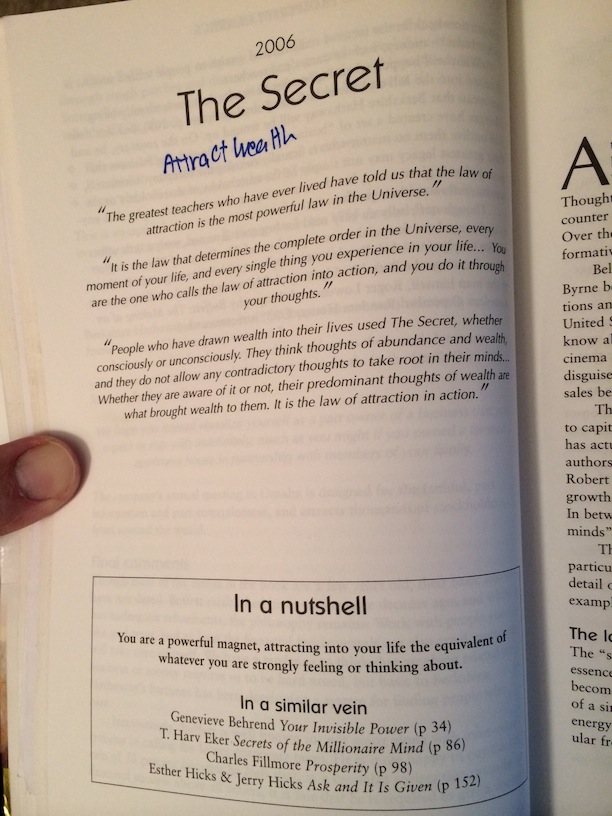What Books to Read if You Hate Reading Books
(and find long books inefficient)
Within the first month of creating GoodLookingLoser.com, guys were asking me what books I could recommend to them.
I'm going to assume they meant 'Self-Improvement' or 'Personal Development' books. And Not a book about zombies or magical children, or whatever you kids are into.
These are virtually my only recommendations.
But first -
It's HIGHLY IMPORTANT that you understand why I am recommending these books and why they will improve your life/mind while other longer, better-written books will not.
Good Looking Loser's 10% Bookworm Theory
This is important, it was one of the best things I ever learned.
(technically - it's my opinion)
Regardless of how "good" of a reader you are, how smart you are or even how well you are able to comprehend and process information, you are subject to the "10% Rule".
My 10% rule states -
At best, within a week, you will only remember 10% of the content you just read.
The longer the book, the less you will remember. Guaranteed.
Despite how engaged you might be to a certain book (or video), within about a week removed, and certainly a month, you will only remember 10% of what you read.
That 10% will usually consist of -
- The general lesson in the book (9%)
- Less than a handful of particular lines or themes that you could relate to or were particularly stimulating (1%)
If you don't apply what you learned, 10% slowly drops to 1 or 2% within 6 month to a year.
That is why -
I suggest (if you like reading and find it an efficient way to learn, I usually DO NOT), you should only read ONE (or MAX two) books a year.
Read the book once for general meaning.
Re-read it for detail.
APPLY EVERY CONCEPT IN THE BOOK before you read ANYTHING ELSE.
Otherwise, the vast majority is simply entertainment and eventually lost.
My Mom, God bless her, has read more self-help and 'how to' books of anyone I know.
When she began to suffer from early onset-Alzheimer's/Dementia and could no longer read well, I decided to sell her books on Amazon.
I sold over 90 self-help books, all of which I think she read cover-to-cover.
She never applied a single concept she 'learned' in any of those books.
At best, it was a temporary "ah-ha!" or some 'feel good' moments.
It can take months, often years, to apply and reinforce self-help concepts.
That is why I do not recommend any books that lack a STEP-BY-STEP process with a near guaranteed outcome.
That doesn't mean there's no good 'self help' or personal development books out there.
There are.
Many of those books, written by people 5x smarter than I am, are deeper and more insightful than my VERY BEST material.
But the likelihood that you actually apply the concepts you read in a 300 page book is low.
The likelihood that the books "change your life", is almost none.
I have a nice trick around the 10% rule however.

How to Beat the 10% Bookworm Rule
Sometime back in 2005-2006, I bought all these "personal development" books.
A lot of the usual suspects -
(I just looked in the box in my closet)
- Rich Dad, Poor Dad
- 4-Hour Work Week
- Awaken the Giant Within
- Unlimited Power (Tony Robbins' #1 Book)
- Wild at Heart
- No More Mr. Nice Guy
- Never Get a Real Job
- The Millionaire Next Door
- About 15 or 20 others... some on dating and mindset
For me, it was more like the "1% Rule", I wasn't getting through ANY of the books.
(Ironically, the book that I almost read cover-to-cover was 'The Game', but even still - I never finished it. I have better things to do.)
Maybe I really do have ADHD, but I found it grueling and my growing library and "quest for knowledge" became homework.
There was too much information to sort through and apply.
Later in 2006, I found some books by a certain little-known author that totally helped me out.
His name is Tom Butler-Bowdon and he basically writes 2 or 3 page summaries/highlights on ALL the most famous/riveting success/personal development books.
For me, it was huge.
I could get ALMOST ALL the most important information in about 15 or 20 minutes and not have to commit to reading the books from cover-to-cover.
Although I'm fairly intelligent, despite rumors to the contrary, I love how he "dumbs down" the book and focuses on THE MAIN POINT rather than trying to be eloquent or complicated.
Butler-Bowdon's books are like high-quality "Sparknotes" or "Cliff's Notes" of all the books that you want to read.
Here are the Tom Butler-Bowdon books that I own -
- "50 Success Classics" by Tom Butler-Bowdon
- "50 Prosperity Classics" by Tom Butler-Bowdon
- "50 Self-Help Classics" by Tom Butler-Bowdon (I own the audiobook)
I recommend the first two since that's what most of you guys are after.
Anything by Tommy B should be good though.
It's easy reading. As self-improvement SHOULD BE.
Even though you aren't getting ALL THE DETAILS (words), you would only remember <10% of the complete book anyway.
If you read these summaries several times, you might actually remember more of the concepts than if you read the entire book.
Simplified concepts are more likely to be applied anyway.

How to Read (Study) These Books
(if you are into that sort of thing...)
I suggest you only read ONE summary a day.
That's right - just 2 or 3 pages.
Read it first for general theme.
Read it again for detail.
With a highlighter - break down Tom Butler-Bowdon's summary into your own shorter summary.
Write down (not type out) the lines and concepts your highlighted.
(call me Grandpa, but I feel like writing better retains/comprehends information)
Read the summary and your summary again everyday, for the next 5 to 7 days.
By that point, if ever asked, you will probably be able to recite all the most important concepts in the book in the simplest form.
If you have a photographic memory, you'll basically know a book you haven't actually read INSIDE and OUT.
Something you WOULD NOT be able to do if you took weeks/months to actually read the book from cover to cover.
If you find yourself particularly intrigued by a certain book, by all means - buy it and read it cover-to-cover. Understanding the key concepts beforehand should actually help you comprehend the book.

Intellectuals, Get Over Yourself
Self-proclaimed 'Intellectuals' might disagree with my highly [near genius] efficient way to consume written content.
That's fine.
Self-help and personal development isn't really meant for intellectuals.
(let alone sleeping with girls or making money)
The ultimate goal of personal development books is to DO SOMETHING WITH IT and not just "get smarter" or "know more".
It's about improving your life and not just your mind.
Besides, being successful is highly dependent on your ability to do an adequate job in an inadequate amount of time.
If you are sick of reading 200-300 page books and not even remembering/knowing what the most important concepts you read were - check out Tom Butler-Bowden's books.
I think they are quite good.
If you have some other recommendations for EFFICIENT ways to consume personal development, success, self-help books - let us know below.
Read More
